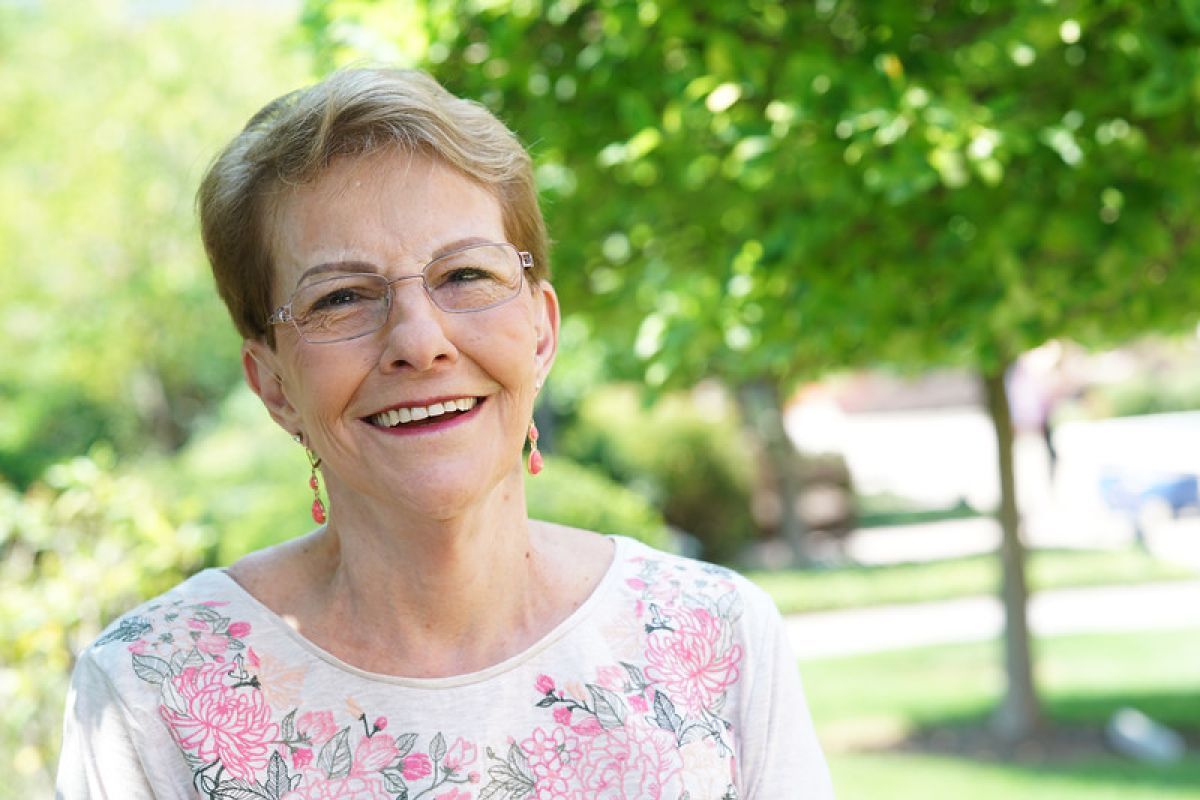Judy Matusek of Lockport, NY, is all about family. With two children, four grandchildren and three great-grandchildren, she was always on the go — until a cancer diagnosis slowed her down.
In July 2016, after a day of gardening and yard work, Judy knew something wasn’t right. She had severe pain in her ribs and difficulty breathing. Her primary care doctor, who had noticed small spots on her lungs in an x-ray, sent her to a pulmonologist in nearby Niagara Falls. There she was diagnosed with stage 4 non-small cell lung cancer.
“When I was diagnosed, my first thought was that I had to get to Roswell. I didn’t ask my doctor; I called Roswell Park right away,” Judy says.
After diagnosis, Judy was seen by a pulmonologist at Roswell Park before being transferred to the care of Grace Dy, MD, DIvision Chief of Thoracic Oncology.
“I had already heard wonderful things about Dr. Dy and her team from friends, so I knew I was in good hands,” Judy recalls. “The first six months were tough. I was in a lot of pain and had to rely on my family to take me to appointments and keep track of my care. My grandson is a nurse, so he or my daughter went with me to almost every appointment.”
Never miss another Cancer Talk blog!
Sign up to receive our monthly Cancer Talk e-newsletter.
Sign up!Judy’s tumor was causing a great deal of pain and pressing on her nerves, so she was taking pain medicine to help her cope. During this time, she also spent six days in the hospital at Roswell Park to help her regain some strength.
In October, Judy began her first Keytruda infusion treatment. Keytruda had recently been approved by the FDA to treat non-small cell lung cancer. Keytruda is a drug that can help your immune system fight cancer. When you have cancer, your immune system tries to fight it with T cells. Cancer can hide from T cells and continue to grow and spread. Keytruda can help your T cells target those hidden cancer cells so you can fight cancer with your own immune system.
Just two months after starting treatment and just days before Christmas, Judy received the news that her tumor had shrunk by 50 percent.
“That was a great Christmas present,” she said. “It was amazing to me how much better I felt as the tumor started shrinking and I didn’t have any side effects from the treatment. I was able to do things on my own again, like driving.”
Judy started getting Keytruda treatments every three weeks, then every six weeks, and now she has treatments every eight weeks. Almost a year after being diagnosed with lung cancer, Judy’s tumor has shrunk 95 percent.
“Sometimes it is hard to believe I even have cancer. I am blessed to live near Roswell and be able to be cared for by Dr. Dy and the team there,” she said. “Most importantly, I am blessed to be able to continue to spend quality time with my kids and grandkids.”
Editor’s Note: Cancer patient outcomes and experiences may vary, even for those with the same type of cancer. An individual patient’s story should not be used as a prediction of how another patient will respond to treatment. Roswell Park is transparent about the survival rates of our patients as compared to national standards, and provides this information, when available, within the cancer type sections of this website.

